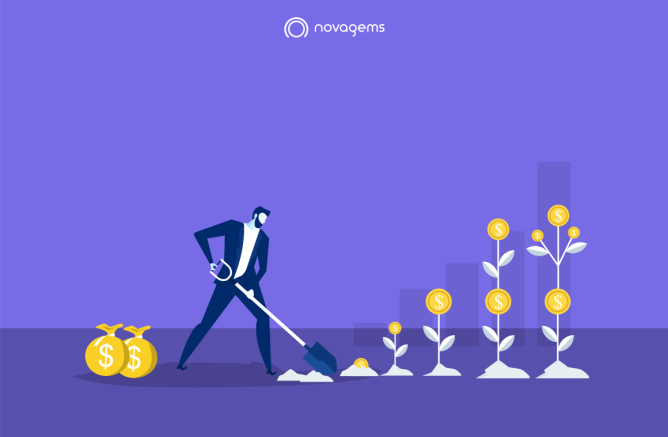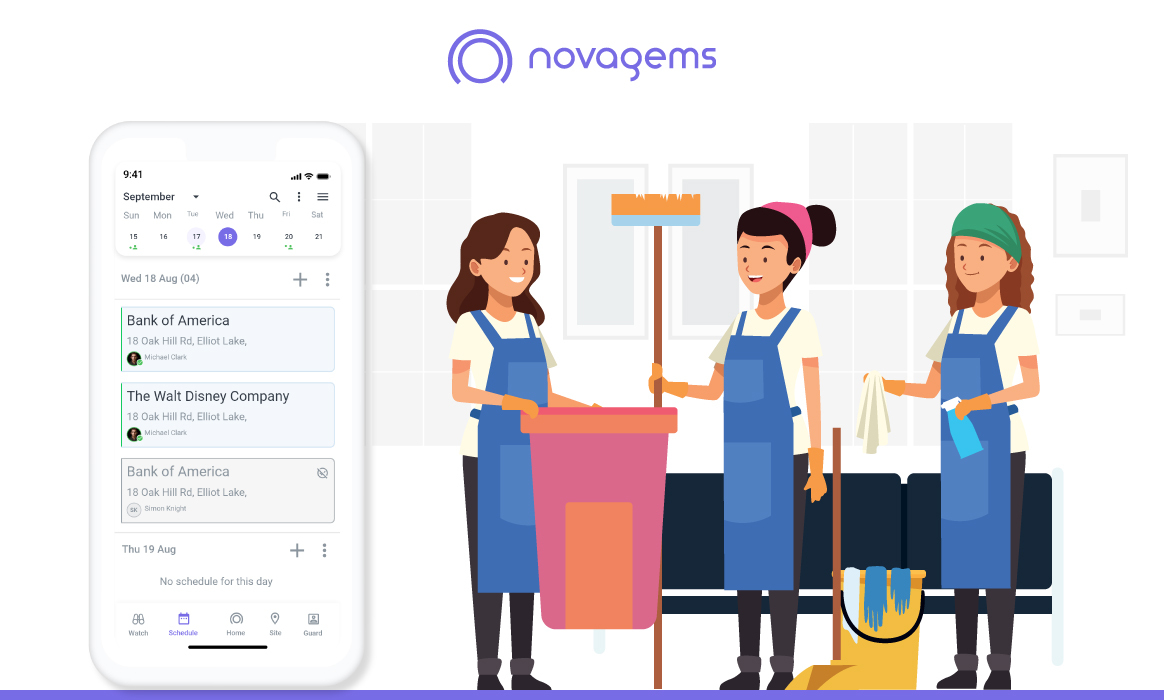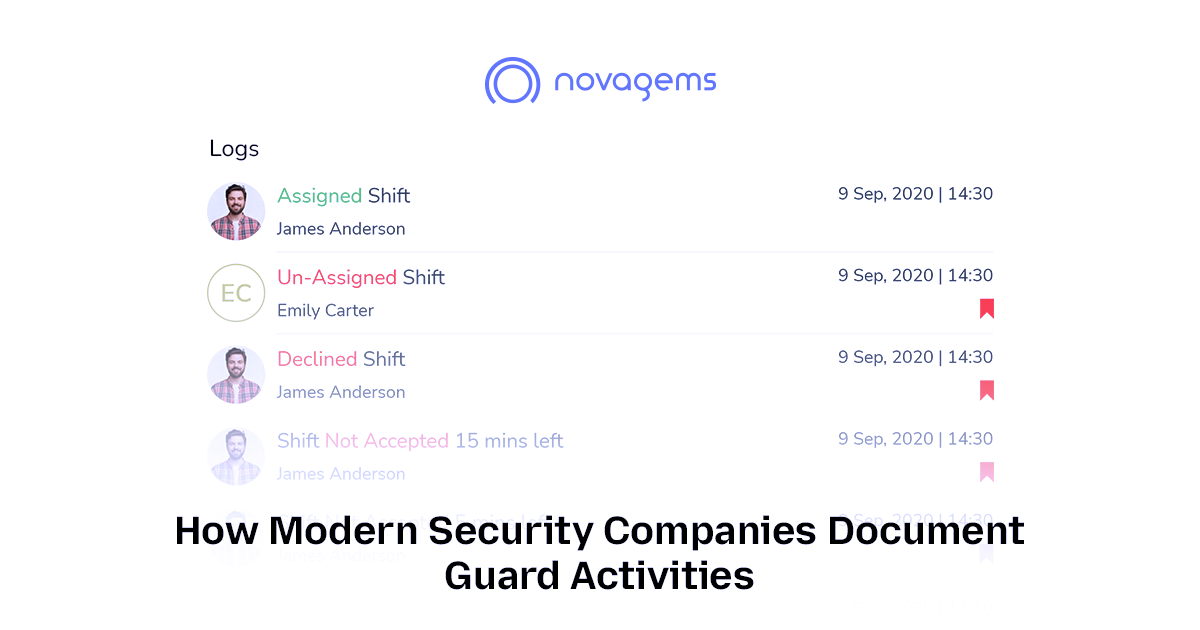How Profitable Is a Cleaning Business
Published on: Sun, Jun 23, 2024
Last updated: 2025-09-19
Read in 10 minutes

Key Takeaways
- The U.S. cleaning industry was worth $90 billion in 2023, and the global market will hit $468 billion by 2027 (IBISWorld, Allied Market Research).
- Cleaning business profit margins range between 10% and 28%, depending on niche and efficiency.
- Residential cleaning provides fast cash flow, while commercial cleaning offers recurring high-value contracts.
- Startup costs are relatively low, often between $2,000 and $6,000, making it one of the most accessible businesses for new entrepreneurs.
- Profitability depends on smart pricing, customer retention, marketing, and adopting tools like workforce management software.
Is It Profitable to Own a Cleaning Business?
The short answer: yes. A cleaning business can be highly profitable when structured properly.
The cleaning industry is considered “recession-resistant.” No matter the economy, offices need regular janitorial services, and households increasingly outsource cleaning to save time. With relatively low startup costs and steady demand, cleaning businesses offer both immediate income and long-term growth potential.
But profitability depends on three main factors:
- Your niche (residential vs. commercial vs. specialty cleaning).
- Your pricing strategy.
- How efficiently you manage operations and labor costs.
There are people who like working 9-5 and then there are people who are happy to run a business. If you are also one of those who belong to the second category and have decided to run your own business, well, first of all, let me say congrats! That is a serious step you have taken. If you belong to the cleaning industry and have decided to run your own cleaning company then you might be wondering - is a cleaning business profitable. The good news is that yes, it is. If you have just started then there might be some pointers you need to cover.
The cleaning industry in the U.S. was valued at over $90 billion in 2023, showing strong growth potential. The profitability of a cleaning business depends on various factors, such as managing costs effectively, delivering efficient services, and having a solid business plan. In this blog, we will cover those basic points so that you know which cleaning business is profitable and how you can grow it.
Is It Profitable to Own a Cleaning Service Business
The cleaning industry provides enough growth opportunities. So it is safe to say that it is profitable. Even if you are just starting, you have a broader playground to test out the field. Once you get a hang of it you can try different areas such as niche markets such as
- Window cleaning
- carpet cleaning
- deep cleaning
- seasonal cleaning
- lawn cleaning etc.
The cleaning services industry offers flexibility and scalability. Even if you are just one one-man army you can scale your cleaning business easily and make your company grow.
Understanding Revenue and Profit
Revenue is the total income you get from cleaning jobs. While profit is the amount left after deducting all expenses like labor, supplies, and overhead costs. Starting a cleaning business often requires a lower initial investment compared to many other industries, making it accessible for new entrepreneurs. If you want to learn how to grow a cleaning business, you need to understand these two terms.

How Much Revenue Does a Cleaning Market Make?
Essential expenses include cleaning supplies, equipment, insurance, marketing, and transportation. As the business grows, you may need to hire staff, rent office space, and invest in advanced equipment. Keeping these costs under control while scaling up operations is crucial to maintaining profitability. But how much revenue you make depends on many other factors like -
- The amount of money you charge per client or service
- The amount of bookings you are taking per day or per week
- The amount of new or old clients you have
- How much new business you are getting
- How quickly you can generate new leads
For example, a residential cleaning business might clean five homes a week at $150 per home, generating $750 weekly or $39,000 annually. In contrast, a commercial cleaning business might secure a contract to clean a 10,000-square-foot office building at $0.15 per square foot, generating $1,500 per visit. If cleaned weekly, this single contract could bring in $78,000 annually.
Understanding Revenue and Profit in Cleaning Services
To answer “Is a cleaning business profitable?”, you need to distinguish between revenue and profit.
- Revenue: The total amount you bring in from cleaning contracts or jobs.
- Profit: What’s left after expenses like supplies, wages, transportation, and insurance.
On average, cleaning businesses operate at 10–28% net profit margins, which is above many service industries. This means if your business generates $500,000 annually, your net profit could fall between $50,000 and $140,000.
How Much Profit Does a Cleaning Service Make?
As a business owner, your take-home money is what is left after you have done the expenses and paid your staff. That is your profit. The profit a cleaning service makes can vary widely based on the type of cleaning services offered, the efficiency of operations, and the scale of the business. For small, home-based businesses, profit margins can be even higher if overhead costs are low. After all, how profitable cleaning business is depends on how much profit it is making.
Moreover, the profitability of a cleaning service also depends on
- location
- Niche you serve
- Ability to retain or gain more clients
For example, a residential cleaning business might charge $150 per home, with costs for supplies, labor, and transportation totaling $100. This leaves a profit of $50 per job. For commercial cleaning services, a contract to clean a 10,000-square-foot office building at $0.15 per square foot could generate $1,500 per visit, with expenses totaling $1,000. This would leave a profit of $500 per visit.
Revenue varies widely depending on location, niche, and scale. Let’s break it down.
Residential Cleaning Revenue
Residential cleaning services typically charge $25–$60 per hour, per cleaner, or $100–$250 per home visit depending on size and location.
- Example: A solo cleaner working 20 hours a week at $30/hour could make ~$2,400/month ($28,800/year).
- Example: A small team cleaning 10 homes per week at $150/home could bring in ~$6,000/month ($72,000/year).
Commercial Cleaning Revenue
Commercial cleaning contracts are larger and recurring, often billed monthly. Rates usually fall between $0.05–$0.25 per square foot.
- Example: A 10,000 sq. ft. office building contract at $0.15/sq. ft. = $1,500 per cleaning. Weekly service could generate $6,000/month ($72,000/year) from just one client.
That’s why many cleaning entrepreneurs expand into commercial services once they’ve built initial capacity.
Tips to Grow Your Cleaning Business
Now that you have the answer to your question, “Is a cleaning business profitable” you can try some tips to make it more profitable.
- Increase the pricing of the services you offer
- Offer more services and get into niche markets such as carpet cleaning, window cleaning, etc.
- Cut down overhead costs and use resources efficiently.
- Use software that will help you manage the operation more effectively.
- Use the power of marketing and make a good brand image
Residential vs. commercial—which is more profitable?
Both residential and commercial cleaning services have their own set of advantages and profitability potential. Residential cleaning services are often easier to start and manage, making them a popular choice for new entrepreneurs. These services can quickly generate a steady cash flow due to the high demand from homeowners.
-
Residential Cleaning Services
Residential cleaning is generally more straightforward, requiring less specialized equipment and training. It can be a great way to build a reputation and client base before expanding into more complex services. However, the profit margins can be slimmer due to lower pricing and higher competition.

-
Commercial Cleaning Services
On the other hand, commercial cleaning services often have higher revenue potential due to larger cleaning contracts and more consistent work. Commercial clients, such as office buildings, schools, and hospitals, require regular cleaning. And if they need regular cleaning you have a recurring client with you. And this in the end provides a stable income. These jobs have more chances of generating money. But they also require more significant investment in equipment and staff. And it does not only stop there. You will need to get a license to run a business, do proper marketing, and also follow industry standards and regulations.
So which one to choose? The choice in the end depends upon you.
- business goals,
- available resources, and
- market demand
There are many sectors where you can have both - residential and commercial cleaning services. You are going to be in this industry for a long time, it’s not compulsory that you need to have everything figured out just now. You can explore, learn and adapt. Once you get a hang of it you can switch the sectors. And once you gain experience you can charge accordingly. This way you can increase your profits and make your business grow.
Is It Worth Starting a Cleaning Business?
The cleaning business has become a popular choice amongst new business owners. Since the demand is expected to grow, now is the chance to invest in this industry. The increasing awareness of hygiene and the need for professional cleaning will be the driving force. It’s always a good idea to do your research before starting any business. But if you have the willpower and determination to go for it, you can achieve greater success. Now why is choosing the cleaning service a good choice? Because of various reasons like -
- The initial investment is low
- You can be your own boss and make your own rules
- You can easily set your own standards
- High demand for cleaning services
- Flexibility and scalability
- Potential for high-profit margins
- Easy to market and build a client base
- Personal satisfaction and community impact
How Much Profit Does a Cleaning Business Make?
Profit margins depend on niche and efficiency.
- Residential cleaning: 10–20% profit margins. Lower upfront costs but also more competition.
- Commercial cleaning: 15–28% profit margins. Higher startup investment (equipment, staff), but more stable recurring revenue.
- Specialty cleaning (carpet, window, post-construction, medical facilities): Often the most profitable, with margins above 25%.
According to Thumbtack and HomeAdvisor, average profit margins for cleaning businesses are between 10–28%, making it more profitable than many service-based businesses.
Is It Worth Starting a Cleaning Business Today?
Absolutely. The industry outlook is strong:
- The U.S. cleaning services industry generated $90 billion in 2023 (IBISWorld).
- Globally, the cleaning services market is projected to hit $468 billion by 2027 with a 6.1% CAGR (Allied Market Research).
- By 2026, 80% of U.S. households are expected to use outside cleaning services (Allied).
With demand rising, low entry barriers, and healthy margins, cleaning businesses remain one of the most attractive opportunities for new entrepreneurs.
Conclusion
So, is it profitable to own a cleaning service business? Well, the answer is yes, if it is managed properly. With the right strategies, you can maximize revenue, minimize costs, and build a sustainable business. Start with a solid business plan, understand the market, and focus on providing exceptional services this will set you apart from the competition. As with any business, dedication and smart management are key to realizing the full profit potential.
Frequently Asked Questions (FAQs)
-
Is a cleaning business really profitable?
Yes. Profit margins range from 10–28%. Profitability depends on your niche, pricing, and efficiency. -
How much money do I need to start a cleaning business?
Most small residential cleaning businesses start with $2,000–$6,000 in equipment and supplies. Commercial cleaning requires more. -
What are the most profitable cleaning services?
Specialty niches like post-construction cleaning, window cleaning, carpet cleaning, and medical facility cleaning offer higher margins. -
Should I start with residential or commercial cleaning?
Residential provides quick cash flow. Commercial cleaning offers recurring, high-value contracts but requires more resources. Many entrepreneurs do both over time. -
How can I grow my cleaning business fast?
Focus on retaining clients, building a strong digital presence, pricing strategically, and exploring specialty cleaning services.
Get a Free Trial
Sign up For Newsletter
Latest Blog Posts
Get Started
Start being productive & grow your business
with Novagems





